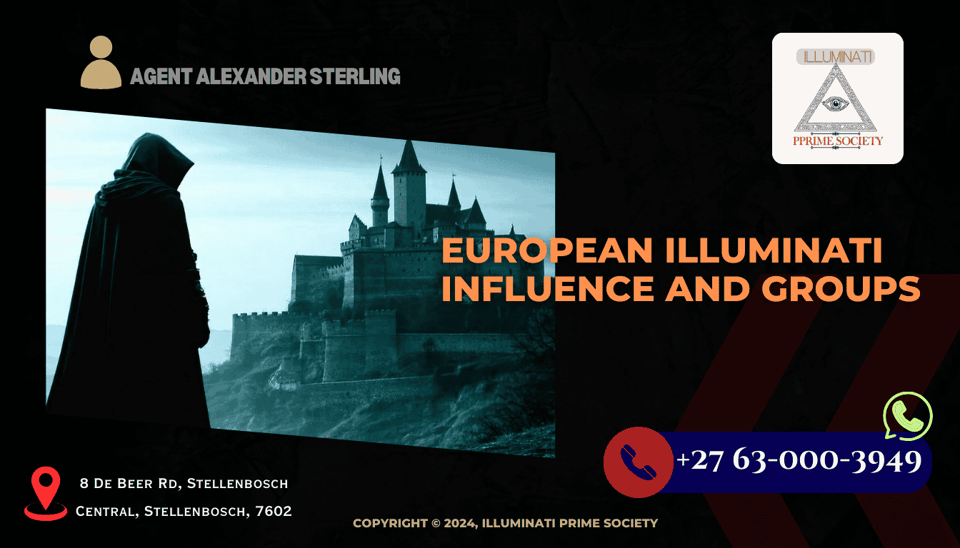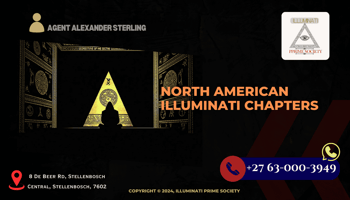Unveil the mysterious and intriguing history of the Illuminati in South America, exploring its...
Exploring European Illuminati Influence and Groups

Unveiling the enigmatic influence of the European Illuminati and the clandestine groups shaping history.
To guide you deeper into the Illuminati ecosystem, talk to us:
-
“Ready to share your success story?” → Contact Form
-
“Learn directly from Agent Alexander Sterling” → Agent’s Blog
-
“Speak privately about your path” → Talk to Agent on WhatsApp ✅
- “Explore more member journeys” → /illuminati-member-testimonials
- "Global Chapters and Expansion " → /global-chapters-expansion
The Origins and Historical Context of the Illuminati
The Illuminati, a term often shrouded in mystery and intrigue, traces its origins back to the late 18th century. Founded on May 1, 1776, by Adam Weishaupt, the Bavarian Illuminati was an Enlightenment-era secret society. Weishaupt, a professor of canon law and practical philosophy at the University of Ingolstadt, sought to promote rationalism and free thought in an era dominated by religious and monarchical control.
The organization aimed to influence political decisions and societal norms subtly, embodying the Enlightenment ideals of reason, secularism, and equality. Despite its disbandment by the end of the 18th century due to political pressure, the Illuminati's legacy continued to inspire various secret societies and conspiracy theories over the centuries.
Major European Illuminati Groups: An Overview
Throughout Europe, several groups have claimed or been linked to the Illuminati legacy. One notable example is the Freemasons, who share similar Enlightenment ideals and have often been associated with Illuminati principles. Despite the lack of concrete evidence linking the two, the Freemasons' secretive nature and influence in political and social spheres have fueled these associations.
Another prominent group is the Rosicrucians, a mystical society that combines elements of alchemy, Hermeticism, and Kabbalah. Though not directly connected to the Illuminati, their focus on esoteric knowledge and spiritual enlightenment resonates with the ideals that Weishaupt's group championed. Additionally, modern-day organizations like the Ordo Templi Orientis (OTO) continue to explore Illuminati concepts, blending them with occult practices.
Influence on European Politics and Culture
The influence of Illuminati-related groups on European politics and culture has been a topic of much debate and speculation. Historical records suggest that the Bavarian Illuminati infiltrated various Masonic lodges and other societies, attempting to spread their Enlightenment ideals. This subtle influence is believed to have played a role in shaping progressive political thought across Europe.
Culturally, the Illuminati and its associated groups have left an indelible mark on literature, art, and popular culture. From Goethe's 'Faust' to Dan Brown's 'Angels & Demons,' the allure of secret societies and their hidden influence has captivated the imagination of many. The symbols and rituals associated with these groups often appear in artistic and literary works, reinforcing their enigmatic presence in European culture.
Conspiracy Theories and Public Perception
The term 'Illuminati' has become synonymous with a wide range of conspiracy theories, many of which suggest that a shadowy elite controls world events from behind the scenes. These theories often lack credible evidence but persist due to the secretive nature of the groups involved and the public's fascination with hidden power structures.
To guide you deeper into the Illuminati ecosystem, talk to us:
-
“Ready to share your success story?” → Contact Form
-
“Learn directly from Agent Alexander Sterling” → Agent’s Blog
-
“Speak privately about your path” → Talk to Agent on WhatsApp ✅
- “Explore more member journeys” → /illuminati-member-testimonials
- "Global Chapters and Expansion " → /global-chapters-expansion
Public perception of the Illuminati is often shaped by sensationalized media portrayals and speculative fiction. While some view the Illuminati as a benevolent force working for the greater good, others see it as a malevolent entity seeking global domination. This duality in perception underscores the complexity and enduring intrigue surrounding the Illuminati and its supposed influence.
Modern-Day Illuminati: Fact or Fiction?
The existence of a modern-day Illuminati is a subject of ongoing debate. While many contemporary organizations claim to draw inspiration from the original Bavarian Illuminati, there is little evidence to suggest that a direct, unbroken lineage exists. These modern groups often blend historical Illuminati ideals with new-age spirituality and occult practices.
Skeptics argue that the concept of the Illuminati as an all-powerful secret society is largely a myth perpetuated by conspiracy theorists. However, the enduring fascination with the Illuminati reflects a broader human desire to understand and control the forces that shape our world. Whether fact or fiction, the Illuminati remains a powerful symbol of hidden influence and the quest for knowledge and power.
.png?width=100&height=100&name=Illuminati%20Prime%20Society%20Logo%20(1).png)


